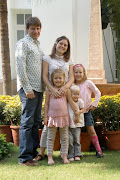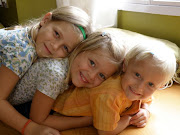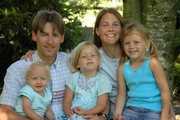On Saturday evening (October 4th, 2008), I attended a public dialogue at the YMCA in East Nizamuddin (New Delhi). It was called, “Perspectives on Peacemaking: Muslims and Christians in Constructive Conversation.” A little over a hundred people – and hardly a uniform crowd – gathered in the small auditorium.
The dialogue featured two speakers. The first was a prominent Muslim leader named Maulana Wahiduddin Khan who began the Center for Peace and Spirituality (www.cpsglobal.org), a Delhi-based organization committed to spreading the message of Islam. The Maulana firmly believes that Islam has a message of peace for the world today. The other speaker was Dr. David Shenk, a Christian scholar from the USA who lived in Africa for much of his life and has extensive experience in dialogue with Muslims. He believes that the Gospel of Jesus Christ is also a message of peace for the world today.
The event was sponsored by another Delhi-based group called the Interfaith Coalition for Peace (www.icpindia.org), which is working extensively throughout the country on various issues that challenge the peaceful co-existence of numerous faith communities in India. The President of the Interfaith Coalition for Peace (ICP), Dr. Syed Zafar Mahmood, chaired the evening, while his close co-worker, Father Packiam Samuel, opened the meeting. Samuel is an Anglican priest and Secretary of the ICP, which means that the leadership of ICP exemplifies good Muslim-Christian cooperation and was, as such, a fitting team to host this particular event.
Beginning with the opening remarks of the Chairman, much effort was made to establish common ground between Muslims and Christians. It was readily acknowledged that the person of Jesus Christ was a good place to begin, as both Islam and Christianity hold Jesus in high esteem. (Differences as to the identity of Jesus within each of these two faith traditions – whether as Prophet or as Son of God – were left unexplored in the course of the dialogue.)
Maulana Wahiduddin Khan continued on the theme of unity and took great care to articulate the many similarities between the teachings of Jesus on peace and that of the Qu’ran. In his understanding, this provided ample reason for Muslims and Christians to join forces and work together for peace, which he challenged the audience to do.
Dr. Shenk affirmed this spirit of cooperation as well, and then went on to explain how the Biblical story in general and the Gospel story in particular reveal a God who makes friends out of enemies. He also emphasized the brokenness of man and that it is only by God’s Spirit that we are enabled and empowered to do the same with our enemies.
Various people who participated in the evening commented on the fact that this was a good beginning and that there is great potential for more such events, especially if they are able to include representation from other religious groups such as Hindus, Sikhs and Buddhists. Indeed, it was mentioned that one of the signs of the event’s success, and maybe a glimpse of what is to come, was the fact that it attracted those other than Muslims and Christians, namely those from India’s Hindu majority. Among those who took interest in the event were various media personnel, a prominent Hindu academic as well as a representative from the Bharati Janata Party, the nation’s strongest Hindu political body.
Others thought that the dialogue was perhaps a good but shallow start, meaning that deeper studies need to be done which highlight not just the similarities but also the unique features of each of these religious perspectives. In addition, these features need to be explored in terms of how they further the cause of peacemaking in our world, even as it pertains to the non-religious.
Also worthy of note was the fact that some of the Muslims in attendance took the opportunity to distribute English translations of the Qu’ran afterwards, which was a gesture gladly received. The members of CPS were also eager to make available various tracts written by Maulana Wahiduddin Khan. Some Christians commented that they perhaps missed out on an opportunity to provide their non-Christian friends with literature that would help to increase understanding of the Christian faith.
After the formal dialogue, a meal was shared, and it seemed to me that this scene emphasized what was perhaps most significant about this event – that such a wide variety of people were together in one place in a spirit of humility, interdependence and simple celebration. The atmosphere was very positive and I know that various informal dialogues were continuing on during the meal. I sincerely hope that these dialogues will continue on into the future through the friendships that were born or strengthened that evening.
In the end, I felt that the event was a success. And personally, that was significant for me because I was involved in organizing it, or at least envisioning it. Months earlier, when I had heard that Dr. Shenk was coming to India, I contacted him about the idea of a dialogue. When he gave a positive response, I asked some of my friends here about it. They liked the idea and ran with it. From there, the event required very little of my time and energy, mostly because the others who joined in were so willing and competent to carry the load, not only the speakers themselves, but also those assisting them, namely Rajat Malhotra (CPS) and Packiam Samuel (ICP).
The evening was also very special for me because I saw so many of my friends from various aspects of my life in Delhi come together in one place. I was especially reminded about how warmly I have been received in my neighborhood by people of faiths other than my own. As I saw one of my Hindu friends there at the dialogue, I was reminded that if it wasn’t for his initiative to approach me in the park one day, I would not have been introduced to Father Samuel and Dr. Zafar at the ICP. In similar fashion, one of my Muslim friends who had befriended me on the street had later introduced me to Maulana-ji and the work of CPS. I have benefitted personally from these interfaith friendships and I continue to give thanks for the opportunity to live out my faith in Jesus in such a rich multi-faith context here in Delhi.
































3 comments:
I have interpret a few of the articles on your website trendy, and I unqualifiedly like your line of blogging. I added it to my favorites web age file and last will and testament be checking promote soon. Will check out my site as ok and leave to me be familiar with what you think. Thanks.
This comment has been removed by a blog administrator.
Post a Comment